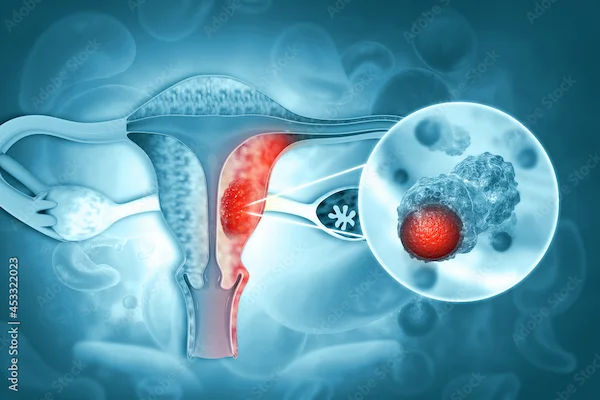Safe Painkillers During Pregnancy Guidelines
Discover which painkillers are safe during pregnancy and which to avoid. Learn expert-approved guidelines, natural remedies, and when to consult a doctor for pain relief while expecting.

Written by Dr. Dhankecha Mayank Dineshbhai
Reviewed by Dr. M L Ezhilarasan MBBS
Last updated on 11th Aug, 2025

Pregnancy is a beautiful journey, but it can also bring discomfort, aches, and pains. Whether it’s back pain, headaches, or muscle soreness, many expecting mothers wonder which painkillers are safe to take without harming their baby. It’s important to know that not all medications are safe during pregnancy, and some can pose serious risks.
In this article, we’ll guide you through safe pain relief options, what to avoid, and when to consult your doctor.
Understanding Pain During Pregnancy
Pregnancy causes many physical changes that can lead to discomfort, such as:
- Hormonal shifts causing headaches
- Weight gain leading to back and joint pain
- Ligament stretching causing pelvic or abdominal discomfort
While some pain is normal, persistent or severe pain should always be discussed with a doctor.
Safe Painkillers During Pregnancy
Not all pain medications are safe for pregnant women. Here’s what experts generally recommend:
1. Paracetamol (Acetaminophen) – The Safest Option
- Why it’s safe: Widely studied and considered the safest painkiller for short-term use in pregnancy.
Used for: Headaches, mild fever, muscle aches, and general pain. - Dosage: Follow the recommended dose (usually 500-1000 mg per dose, not exceeding 4000 mg in 24 hours).
- Precaution: Avoid long-term or excessive use unless prescribed by a doctor.
2. Topical Pain Relief (Gels & Creams)
- Why it’s safe: Applied externally, so minimal absorption into the bloodstream.
- Used for: Localised muscle or joint pain.
- Example: Menthol-based creams (avoid high-dose salicylates unless approved by a doctor).
Consult Top Specialists
Avoid These Painkillers Unless Prescribed
Some painkillers can harm the baby, especially in certain trimesters:
NSAIDs (Ibuprofen, Aspirin, Naproxen):
- Risk: Can affect fetal heart, kidneys, and cause complications in the third trimester.
- Exception: Low-dose aspirin may be prescribed for specific conditions (only under doctor’s guidance).
Opioids (Codeine, Tramadol):
- Risk: Can cause dependency in the baby and breathing problems.
- Only use if prescribed for severe pain under strict medical supervision.
Natural & Non-Medical Ways to Manage Pain
Before reaching for medication, try these safer alternatives:
1. Warm Compress or Heating Pad
- Helps relax muscles and relieve back pain.
- Avoid very hot temperatures; warm, not scalding.
2. Prenatal Massage & Gentle Stretching
- Reduces muscle tension and improves circulation.
- Avoid deep tissue massage; opt for a certified prenatal masseuse.
3. Proper Posture & Support
- Use a pregnancy pillow for better sleep posture.
- Wear supportive shoes to reduce back strain.
4. Hydration & Balanced Diet
- Dehydration can cause headaches—drink plenty of water.
- Magnesium-rich foods (bananas, nuts) may help with muscle cramps.
5. Prenatal Yoga & Light Exercise
- Strengthens muscles and improves flexibility.
- Always consult your doctor before starting any new exercise.
When to See a Doctor
While mild pain is common, some symptoms need medical attention:
- Severe or persistent headaches (could indicate high blood pressure).
- Sharp abdominal pain (possible sign of complications).
- Fever with pain (may indicate infection).
- Swelling with pain (could signal blood clots or preeclampsia).
If over-the-counter pain relief isn’t helping, consult your doctor before trying stronger medications.
Final Tips for Safe Pain Relief
1. Always check with your doctor before taking any medication.
2. Stick to the lowest effective dose for the shortest time.
3. Avoid self-medicating; some drugs may seem harmless, but can be risky.
4. Keep a pain diary to track frequency and triggers.
Need Expert Advice?
If you’re unsure about which painkillers are safe for you, Apollo 24|7 offers expert consultations with obstetricians and gynaecologists. You can:
- Book a video consultation
- Schedule lab tests if needed
- Get personalised medication guidance
Pregnancy is a delicate phase, and your safety and your baby’s come first. Always seek professional advice before taking any medication.
Conclusion
Managing pain during pregnancy requires extra caution, as not all medications are safe for your baby. Paracetamol is typically considered the safest option, while stronger painkillers should only be used under medical supervision. Always consult your doctor for guidance and explore natural pain relief methods to ensure a healthy, comfortable pregnancy.
Consult Top Specialists
Consult Top Specialists

Dr. Mona Yadav
Obstetrician and Gynaecologist
19 Years • MBBS, MD (Obstetrics & Gynaecology)
Dombivli
Nulife multispeciality, Dombivli

Dr. Parul Sharma
Obstetrician and Gynaecologist
8 Years • MBBS, MS (Obstetrics & Gynaecology)
New Delhi
THE DOCTORS NESST, New Delhi

Dr. Asha Rani Singh
Obstetrician and Gynaecologist
24 Years • MBBS DGO
Delhi
Dr Asha Rani Singh Clinic, Delhi
Dr. K Anusha
Obstetrician and Gynaecologist
4 Years • MBBS, DGO
Yemmiganur
SRINIVASAA HOSPITAL, Yemmiganur

Dr. Shyamala Devi
Obstetrician and Gynaecologist
38 Years • MBBS, MS Obstetrics & Gynaecology
Vijayawada
Sri Shivshakti Nilayam, Vijayawada
Consult Top Specialists

Dr. Mona Yadav
Obstetrician and Gynaecologist
19 Years • MBBS, MD (Obstetrics & Gynaecology)
Dombivli
Nulife multispeciality, Dombivli

Dr. Parul Sharma
Obstetrician and Gynaecologist
8 Years • MBBS, MS (Obstetrics & Gynaecology)
New Delhi
THE DOCTORS NESST, New Delhi

Dr. Asha Rani Singh
Obstetrician and Gynaecologist
24 Years • MBBS DGO
Delhi
Dr Asha Rani Singh Clinic, Delhi
Dr. K Anusha
Obstetrician and Gynaecologist
4 Years • MBBS, DGO
Yemmiganur
SRINIVASAA HOSPITAL, Yemmiganur

Dr. Shyamala Devi
Obstetrician and Gynaecologist
38 Years • MBBS, MS Obstetrics & Gynaecology
Vijayawada
Sri Shivshakti Nilayam, Vijayawada




